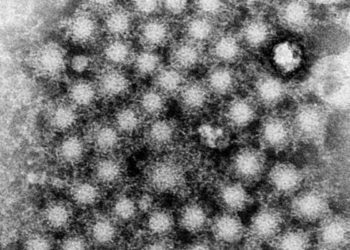National acute HCV infections may be underestimated
1. Less than 1% of clinically diagnosed acute cases of hepatitis C virus (HCV) infection in Massachusetts were reported to the Centers for Disease Control and Prevention (CDC) as confirmed cases for inclusion in national estimates.
Evidence Rating Level: 4 (Below Average)
Study Rundown: National averages of hepatitis C virus (HCV) infection are calculated by multiplying cases reported to the CDC by a factor that attempts to adjust for missed cases, but the true rates of HCV infection are difficult to accurately estimate. This study sought to determine the proportion of clinical cases of acute HIV infection that were ultimately classified as confirmed for surveillance purposes. Using data from Massachusetts, the authors demonstrated that upwards of 80% of clinical cases were reported to state surveillance systems for further evaluation, however less than 1% were reported as confirmed cases to the CDC. The CDC criteria for classifying HCV cases include characteristics like the presence of serologic markers of hepatitis, clinical symptoms of acute disease, and absence of hepatitis A or B antigens. The authors identified restrictive definitions, imperfect data gathering, and inappropriate calculations as reasons for underestimation. However, limitations of this study include the fact that these surveillance procedures may vary geographically. Furthermore, the populations used for this study could include patterns of HCV risk and infection that may be specific to the population. Overall, this study demonstrates that the rates of HCV infection may be underestimated.
Click to read the study, published today in The Annals of Internal Medicine
Relevant Reading: Viral Hepatitis- Statistics and Surveillance
In-Depth [case-series]: Between 2001 and 2011, 115 cases of HCV in Massachusetts were reported as confirmed to the CDC, and a correction factor of 20 applied to estimate 2300 total new cases. During this same period, there were 16 622 cases of past or present HCV in residents age 15-30. Information was gathered from participants enrolled in the BAHSTION (Boston Acute HCV Study: Transmission, Immunity, and Outcomes Network) longitudinal study. Additionally, the study group included inmates from correctional facilities that had been identified using a systematic screening for HCV risk. A total of 183 participants diagnosed with acute HCV were enrolled in BAHSTION between 2001-2011. Of these, 149 (81.4%) were reported to the Massachusetts Department of Public Health (MDPH) and recorded in the MAVEN (Massachusetts Virtual Epidemiologic Network) database. The MDPH confirmed 130 cases for past or present HCV infection, and 43 of these cases met criterion for further evaluation. Only 1 (0.5%) satisfied the CDC definition for a confirmed acute surveillance case and was therefore reported to the National Notifiable Disease Surveillance System.
Image: PD
©2015 2 Minute Medicine, Inc. All rights reserved. No works may be reproduced without expressed written consent from 2 Minute Medicine, Inc. Inquire about licensing here. No article should be construed as medical advice and is not intended as such by the authors or by 2 Minute Medicine, Inc.




![Neighborhood environments may influence incidence of diabetes [MESA study]](https://www.2minutemedicine.com/wp-content/uploads/2015/06/tai-chi-75x75.jpg)
